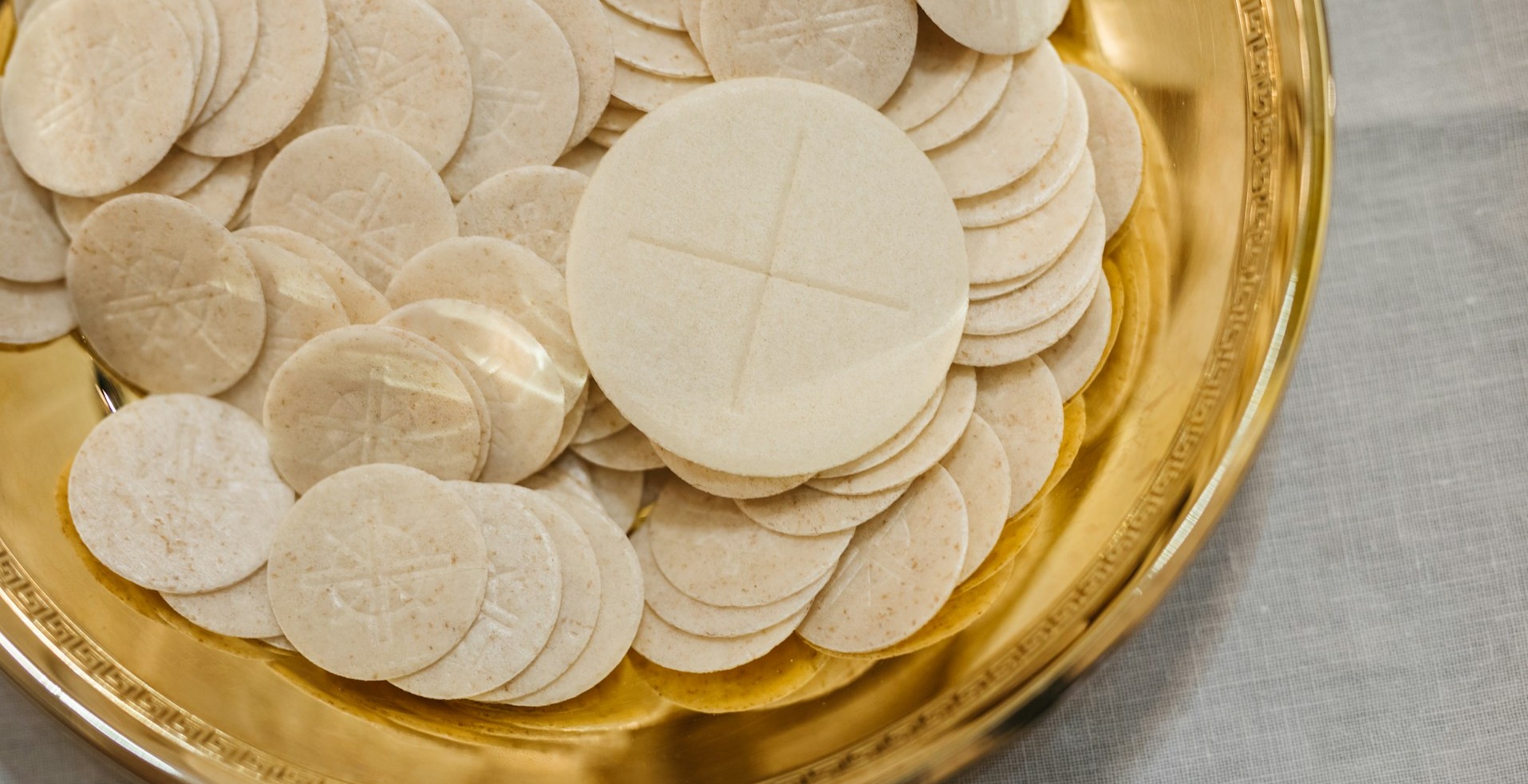Guidelines of Ministry of Holy Communion for those Living with Coeliac Disease or Gluten Intolerance
Bishops Commission for Liturgy

Coeliac disease is an immune reaction to eating gluten, a protein found in wheat, rye, barley and oats. For those living with the disease, consuming gluten needs to be minimised or completely avoided. Failure to do so can lead to unpleasant and, often, serious health complications. As a sign of pastoral care and hospitality, ministers of Holy Communion need to be fully aware of the reality of the condition, and be prepared to assist those living with coeliac disease or gluten intolerance who come to parishes and seek to receive Holy Communion.
Practical Steps
- Communication between those living with coeliac disease or gluten intolerance, parish clergy, sacristans, servers and extraordinary ministers of Holy Communion is important in order to establish commonly understood requirements and procedures before, during and after Mass.
- The parish should obtain low gluten hosts from a Catholic supplier. The term “gluten free” hosts should not be used as the Catholic Church requires bread for the Mass to be made from wheat flour (containing gluten) and water [see Code of Canon Law, Can. 924.2; Congregation for the Doctrine of the Faith, Letter of 24 July 2003 (Prot n. 89/78-17498)].
- Store low gluten breads separate from other breads to be used at Mass in order to avoid cross-contamination.
- Before Mass, prepare a special pyx (a metal vessel for carrying hosts) for containing low gluten breads, avoiding contact with other breads, and place on the altar during the Preparation of the Offerings for consecration during the Eucharistic Prayer.
- At Communion time, the communicant approaches the sanctuary to receive the pyx containing the host from the celebrant or an extraordinary Minister of Holy Communion, replying “Amen” to “The Body of Christ”.
- If low gluten hosts cannot be consumed, the communicant should request to receive the Blood of Christ from a chalice first, before other communicants, in order to avoid cross-contamination.
- Communicants should be aware that when they receive under the form of the consecrated bread alone or the consecrated wine alone, they receive the “whole Christ” [see General Instruction of the Roman Missal (2012) no. 282; Catechism of the Catholic Church (1992) no. 1390.]
- Cleansing of vessels and purifiers after Mass should take place in the customary way, avoiding any potential for cross-contamination.
